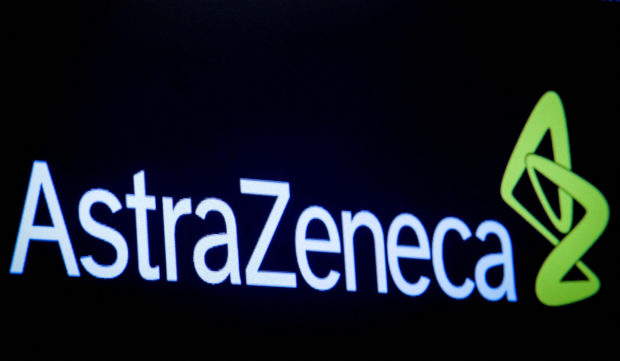AstraZeneca’s COVID vaccine suffers a setback in nasal spray trial

FILE PHOTO: The company logo for pharmaceutical company AstraZeneca is displayed on a screen on the floor at the New York Stock Exchange, U.S., April 8, 2019. REUTERS/Brendan McDermid
Attempts by Oxford University researchers and AstraZeneca Plc to create a nasal spray version of their jointly developed COVID-19 shot suffered a setback on Tuesday as initial testing on humans did not yield the desired protection.
An antibody response in the respiratory mucous membranes was seen in only a minority of participants in the trial, which was in the first of usually three phases of clinical testing, the University of Oxford said in a statement on Tuesday.
Also, the immune response measured in the blood was weaker than that from a shot-in-the-arm vaccination.
Researchers across the world have placed high hopes on nasal spray vaccines against the coronavirus because the method is believed to potentially prevent infection and not just disease as it may prompt an immune response directly in the airways, where the virus enters the body.
READ: FDA: Nasal sprays won’t prevent, treat COVID-19
Article continues after this advertisementIn addition, the method would be less painful and easier to handle than injections.
Article continues after this advertisementRegulators in India and China have already cleared products that are administered through the airways.
India’s health minister last month approved Bharat Biotech’s COVID-19 nasal spray vaccine while China’s CanSino Biologics Inc last month won emergency approval by the country’s drug regulator for an inhaled version of its COVID-19 vaccine.
CanSino has said studies indicated that its vaccine, delivered via a nebuliser device, can induce strong immunity to effectively contain infection, while Bharat’s trial results have not yet been published.
The British trial enrolled 30 previously unvaccinated participants as well as 12 volunteers, who had previously received a standard two-dose vaccine course by injection.
“The nasal spray did not perform as well in this study as we had hoped,” said Sandy Douglas, chief investigator of the trial at Oxford University’s Jenner Institute.
“We believe that delivery of vaccines to the nose and lungs remains a promising approach, but this study suggests there are likely to be challenges in making nasal sprays a reliable option,” she added.
No serious adverse events or safety concerns were reported during the trial, which was funded by AstraZeneca, according to the statement.
For more news about the novel coronavirus click here.
What you need to know about Coronavirus.
For more information on COVID-19, call the DOH Hotline: (02) 86517800 local 1149/1150.
The Inquirer Foundation supports our healthcare frontliners and is still accepting cash donations to be deposited at Banco de Oro (BDO) current account #007960018860 or donate through PayMaya using this link.